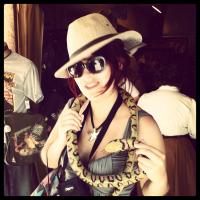Finding your tongue as cook and playwright: The case of Ryk Hattingh's Eensnaar
Translator, 21 (3):
296--309 (2015)DOI: 10.1080/13556509.2015.1103097
Abstract
Although food has become an object of study in various disciplines, the use of victuals in live theatre is still a neglected field. South African and New Zealand playwright Ryk Hattingh?s homage to poet, doctor and Cape cookery expert C. Louis Leipoldt, a one-man play entitled Eensnaar, was staged by director Mark Graham as a cooking session providing a sensorial response to considerations of cultural and linguistic identity. The play centres round a recipe for beef tongue and the culinary implications of preparing traditional dishes outside their country of origin. The dish also exemplifies the expatriate author?s sense of loss of language and a sense of community. The play contains minimal stage directions and no invitation to cook on stage, but Graham?s olfactory emphasis is evocative of Leipoldt?s parallel career as a writer on food under the nom de plume K.A.R. Bonade (carbonnade or char-grilled meat). Leipoldt was instrumental in forging the Afrikaans language, as illustrated by various quotes from his best-known poems. Hattingh?s play contains a number of intertextual references in English and quotations from Moriori incantations translated into Afrikaans. Starting with its title, Eensnaar, this multilingual play written in a minority language and consisting largely of quotations from anthologies and traditional recipe books, might just be untranslatable, a homage not to a poet, but to a language, an intimate letter from playwright to public.
